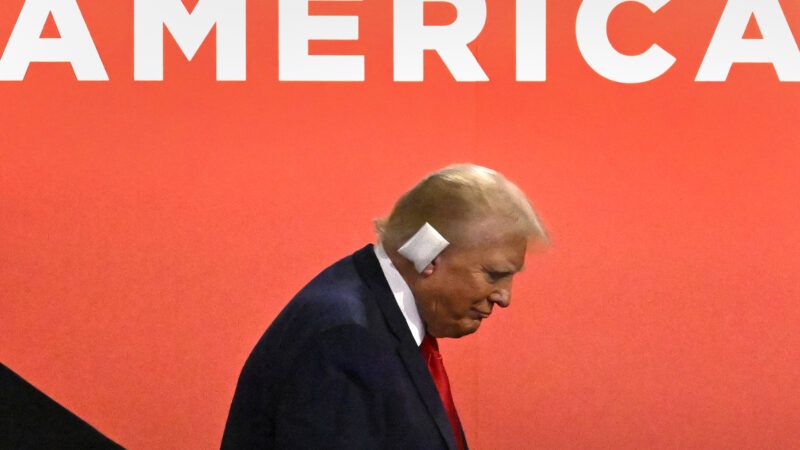Republicans Hammer Biden on Inflation. But Do They Have a Better Plan?
Opening night of the Republican National Convention programmed a central issue with a Trumpian twist: "Make America Wealthy Again."

The Republican National Convention (RNC) kicked off on Monday with a song as old as time: "It's the economy, stupid."
That quote, which traces back to the early 1990s, came from Democratic strategist James Carville, an adviser on Bill Clinton's first presidential campaign. But in a testament to the staying power of that message, and its resonance across political parties, it reappeared tonight in MAGA form: "Make America Wealthy Again."
A noble goal. Can the Republican Party deliver?
It would be hard to answer that based on Monday's program alone, which—as is typical for national political conventions—focused more on platitudes than policy prescriptions.
Much was made on opening night about increased grocery and gas prices. President Joe Biden too often chalks those problems up to "corporate greed"—an allegation he recycled again during his highly anticipated press conference last week. (Which raises the question: Were grocery store owners just feeling charitable until they recently got greedy?)
A more realistic villain is inflation. But it is doubtful that another term with President Trump—or any president, really—would be the antidote.
That's because inflation, like most issues, is complex and multifaceted, and can't be solved or blamed on one singular person, no matter how convenient that might be on a convention floor.
Trump added about $8 trillion to the debt over his tenure, and Biden quickly followed that up with a $1.9 trillion stimulus package. Neither spending spree helped. But there were many other factors as well, including a global pandemic and volatile energy markets due to international conflict.
Trump offers some deflationary policies within his deregulatory agenda, which could increase supply and lower prices of key goods. That's nice. But other parts of the GOP's Trump-inspired platform resemble the protectionist policies that would have once been more at home in the Democratic Party. That they've been wrapped up in nationalist conservative branding does not change the results.
Consider Trump's affection for tariffs, for example, which raise prices on manufacturing inputs, and thus raise actual prices for consumers. J.D. Vance, Trump's newly minted vice presidential pick, does not necessarily allay these fears, as Vance's comparative advantage for the ticket, per Trump, is his protectionist appeal to blue-collar workers in swing states.
What went unmentioned tonight is maybe more instructive for sussing out how a second Trump term would tackle government spending, and by extension, inflation. It is unpopular these days, for instance, for Republicans to be the adults in the room on Social Security and Medicare reform, despite that the former is racing toward insolvency.
"Failure to act will result in a fiscal scenario where Republicans will be left with little leverage as Democrats push through their preferred 'solutions,'" writes Reason contributor editor Veronique de Rugy. "The resulting higher taxes and increased debt will have far-reaching unhealthy consequences for the economy and future generations." That sort of thing might not play well on the RNC stage this week, but it's worth considering if the GOP wants to get serious about inflation.


Show Comments (58)